Why does Britain export 80% of its oil?
The answer is rather more interesting than you might have thought
This time last week Rishi Sunak said he was backing more North Sea oil exploration. It was as much a political statement as a policy one: the authorities are already in the middle of new North Sea exploration negotiations and nothing the Prime Minister said actually changed anything. In practice, this was mostly an attempt to drive a political wedge between Labour and the Conservatives, using Just Stop Oil as a kind of accessory.
I wrote quite a lot about this at the time, and you can read it here. The main thing you need to know is that it’s very unlikely that further exploration in the North Sea will change the fundamental fact that Britain’s part of the North Sea is a mature, declining basin which will probably never afford us energy independence. Both sides - Just Stop Oil and the Conservative Party, are making rather a lot of noise about rather a small amount of oil and gas, symbolic though it certainly is.
However, there was another statistic knocking around at the time which caught my eye - and perhaps it caught yours too. Which is that 80% of the oil produced by Britain is exported. In one sense this statistic will sound a little bit odd. After all, we don’t produce that much crude oil. Indeed, we’re a net oil importer: in 2022, for instance, we extracted 38 million tonnes and consumed 54 million tonnes. So our domestic production was equivalent to about 70% of our eventual use. Raising the question: why are we exporting so much of our own oil?
The answer comes back to the fact that there are many different varieties of crude oil. Some are thick and viscous, some are rich in sulphur, some are clear and liquid, others are gloopy and green. Some look more like vaseline than the dark liquid you probably think of when you think of crude oil. A few years ago Business Insider ran a great series of photos of the weird and wonderful varieties of crude oil.
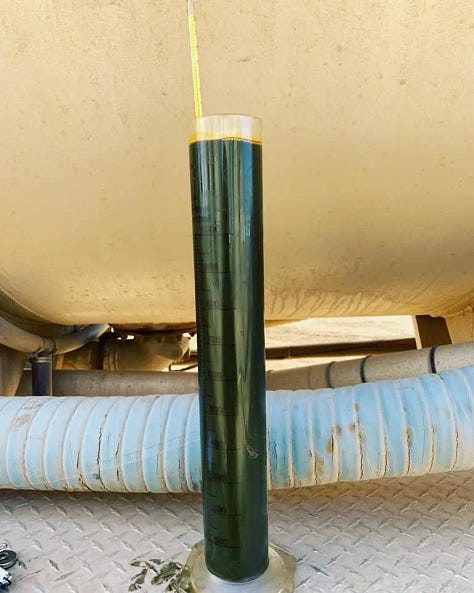

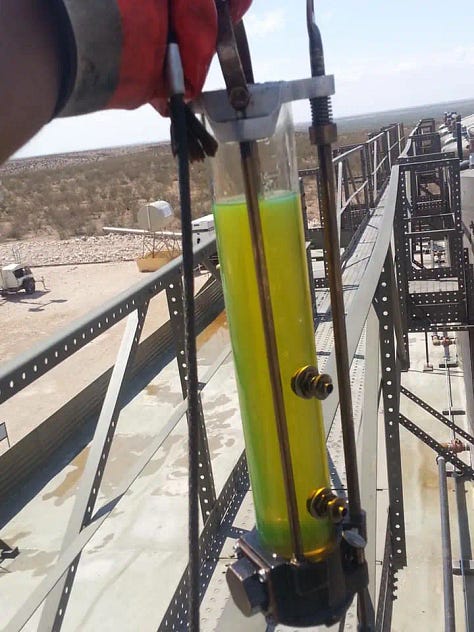
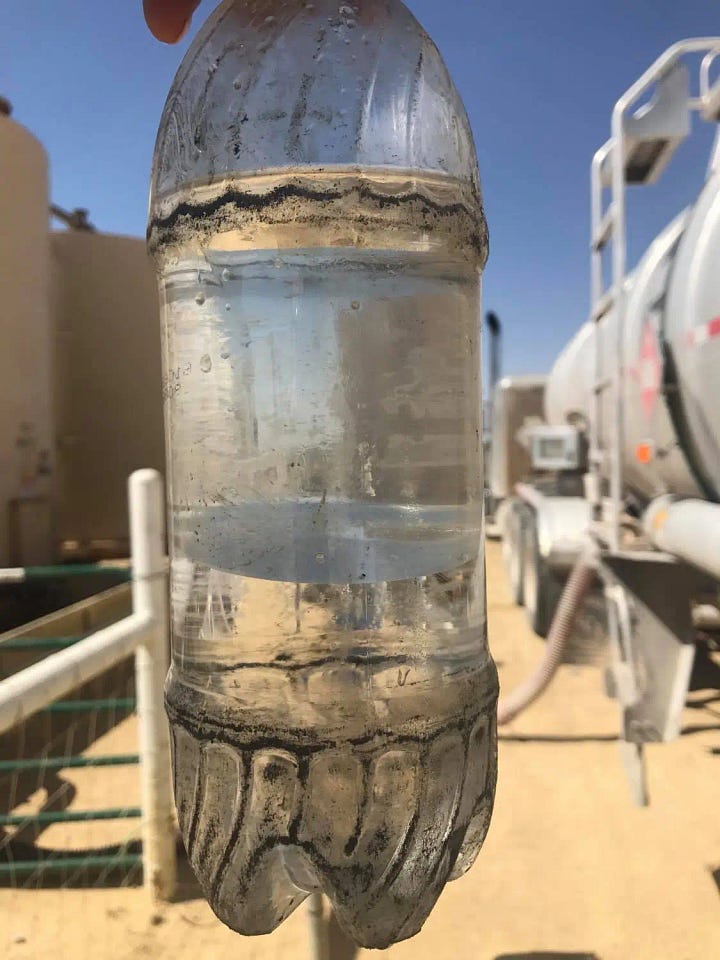
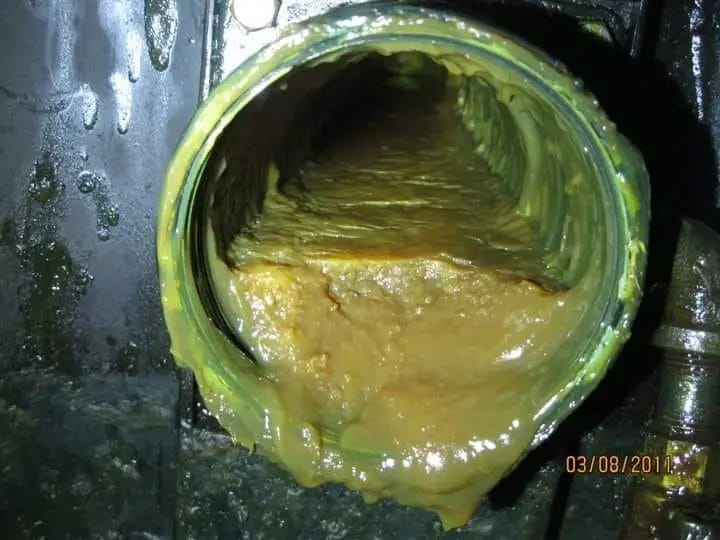
We don’t think all that much about these different varieties of crude - a consequence of the local geology, of the nature of the rocks in which the crude was baked, of the particular types of algae and plankton fossilised hundreds of millions of years ago - but they have an important bearing on what we can do with it. Heavy, sticky, jelly-like crude needs to be heated up to be transported and processed. And the more impurities there are, the more work needs to be done on the crude when it reaches the refinery.
As I write in Material World, the work of an oil refinery is to take these quite variant types of crude and turn them into uniform products
Oils can also be ‘sweet’ or ‘sour’ – a measure of sulphur content, which dates back to the early days when crude was mostly used for indoor lighting. Too much sulphur in your kerosene and not only was there a noxious smell when it burned, it would also tarnish the silver in your lamp. Back then the quickest way to test for this before burning was to give it a quick taste – the more sulphur, the more sour it was – and this shorthand has stuck. Broadly speaking, the less heavy and sour an oil is, the less time and effort refineries have to put into processing it, so lighter and sweeter crudes usually fetch a higher price.
But not all refineries are set up for processing all oil types. Britain’s refineries, for instance, were mostly built before the discovery of North Sea oil, and were designed to work well with Libyan oil, which is where a lot of our crude was coming from at the time. Libyan oil is quite low in sulphur, so UK refineries never invested much in all the machinery and processes you need to remove all that sulphur.
But British North Sea oil is actually quite sour these days (high in sulphur), especially the stuff coming from the Buzzard and other fields in the Forties. It’s the “wrong” type of oil for our refineries. So it gets piped in to this country and then shipped off straight away to other oil refineries around the world which are better equipped to cope with our particular variety of oil: Forties crude ends up in South East Asia, alongside Middle East and Russian crude. This is the way the oil industry works.
This also helps explains one of the weird paradoxes of the modern oil business: that while the US is technically energy independent, producing far more oil than it uses, it’s also not energy independent in practical terms, because it also has to export a lot of its oil and import back stuff from overseas.
Those US crudes you tend to find at shale wells are very light and sweet but US refineries tend (again because of historical reasons) to be set up to process the kinds of heavy crudes you find in Mexico and Venezuela. US crude itself ends up getting shipped off around the world to refineries capable of working with it (including, as it happens, some of the UK refineries).
This might all sound quite illogical: why not just process the stuff that comes out of the ground locally? But it turns out a) it’s just the way the oil industry works and b) it’s also the most efficient way of doing things. In practice, every oil field is a little different and since oil refinery equipment is expensive it makes far more sense to have specific refineries specialising in specific types of oil - rather than having every single refinery equipped to deal with every single variety of oil.
The argument is analogous to Adam Smith’s argument about the division of labour: it makes far more sense for individuals to focus on what they’re good at, and that helps raise overall levels of productivity and performance.
Remembering that crude oil is not a uniform thing is also quite useful when thinking about future UK exploitation too. For instance, much of the oil coming from the newer prospective Shetland fields like Cambo is very heavy indeed - super viscous, waxy crude which needs to be heated up in the pipes through which it’s transported. This has two consequences: first it takes quite a lot of energy to move it and second it is probably not “compatible” with UK refineries, meaning it will have to be transported elsewhere. So it will have a higher carbon footprint than the lighter crudes you find up towards Norway.
But no-one spends much time thinking about this stuff because they spend little time pondering the nature of crude oil. They mostly assume that trade will always be able to flow from one country to another.
What, however, if you can’t make those assumptions anymore? Then all of a sudden this stuff matters enormously. The structure and nature of these flows of oil around the world - a consequence not so much of geography but of each variety of crude’s chemical compounds and each refinery’s digestive system - is all important.
All the more reason why we should spent a little more time looking through the prism of the Material World.


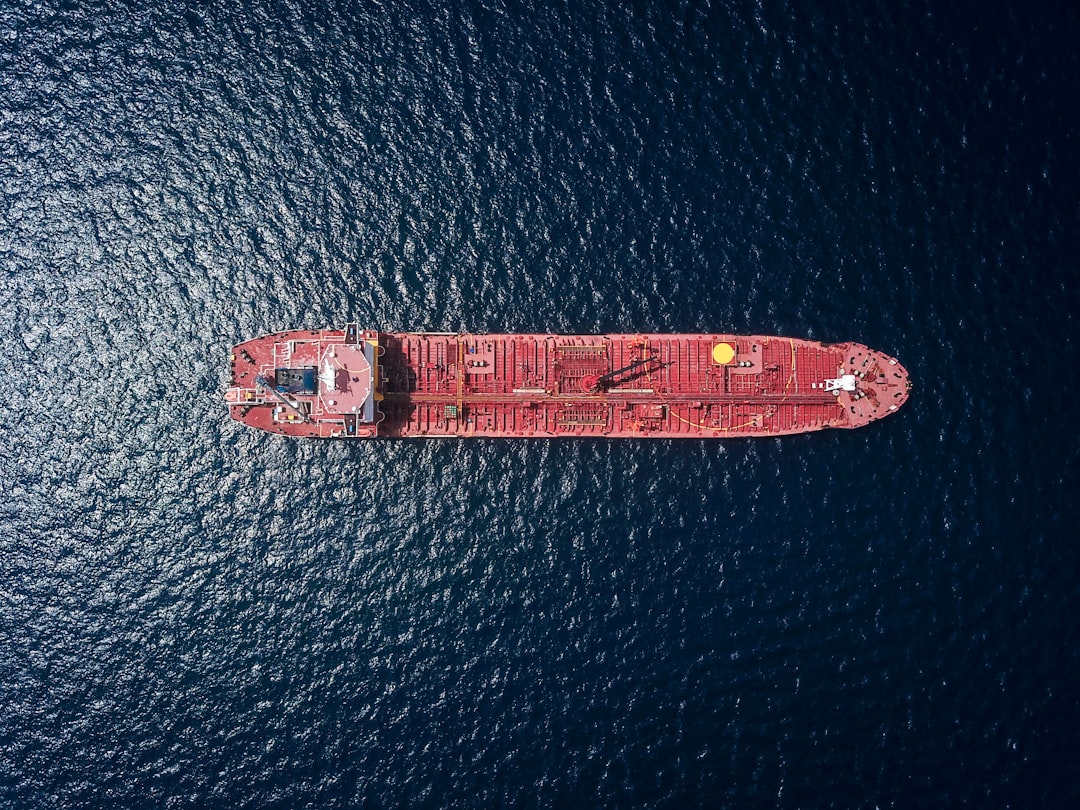


Your point is well made but I suspect much more of our oil is refined 'locally' than most people realise and certainly far more than the lazy claims by the likes of Just Stop Oil, that it's just another internationally traded commodity so ends up everywhere, would suggest.
Refining is a marginal business and refiners work hard to sweat their assets, blending crudes to match the range of products their markets need. Now shipping doesn't come free (tankers are big, expensive beasts), neither does storage and transhipment. If you can source much of your crude regionally then it makes sense to do so, it lowers your feedstock costs. It's one of the few commercial levers you have. If you look at the official figures the bulk of our crude ends up on the continent (I think Rotterdam is the biggest destination). Some may no doubt be exported again but most I am sure will end up in European refineries. Clearly if our domestic reserves are produced and then refined regionally, displacing imported crude from further afield then all to the good; overall carbon emissions are reduced. There won't be much improvement on the UK's official figures of course, which are territorial, but overall the impact is positive. That is without considering the environmental benefits of the far tighter regulatory standards imposed on the oil and gas, refining and petrochemicals sectors in Europe compared to the US and indeed every other part of the world I have worked in.
Rosebank crude is a prime example. Looking at the press releases the crude will be exported direct from the field by shuttle tankers to refineries ... shuttle tankers do just what they sound like, they travel relatively short distances.
As a sometime oil trader I would note that although you have the basics right some of the detail needs elaboration. I found the PQ answer relating to oil imports in 1959/60 which shows and largest supplier then was Kuwait, with Venezuela, Iran and Iraq being other significant crude suppliers - all sources of sour crude. Libya (and Nigeria) isn't even listed. AFAIK the only refinery to major on running Libyan oil was Conoco Killingholme, where the highly specialised petroleum coke production of needle coke used for making carbon nodes for aluminium smelting requires very low sulphur crudes.
https://api.parliament.uk/historic-hansard/commons/1961/jun/08/oil-imports
Other important oil sources are places with big refineries. Supply and demand for oil products are balanced by trading in blending components and finished products.
The reality is that the nature of oil demand has changed over the decades. We no longer burn fuel oil in power stations and industrial boilers, although we did on a huge scale during the miners' strike in 1984. That event meant that refineries were once again maximising output of heavy gunge, and had little use for the light North Sea oil being produced, so it was exported: the foundation that built the Brent oil market.
There were no new additions to distillation capacity after the OPEC crises of the 1970s, however there was a lot of investment in upgrading capacity that turned the heavy fractions into petrol components, and later techniques allowed an increase of diesel production after diesel became the dominant motor fuel. A gradual tightening of sulphur limits in oil products also led to extensive investment in hydro desulpurisation and ways to produce the hydrogen that used. There is a trade off between investment in such plant and using lower sulphur crude inputs. The particularly exacting standards that came from the EU made lower sulphur crude more economic for our refineries where the investment had been based on sweeter North Sea crudes and sligtly less demanding specifications. We still use a lot of sweet Norwegian oil, even as the UKCS has seen its production become increasingly sour.